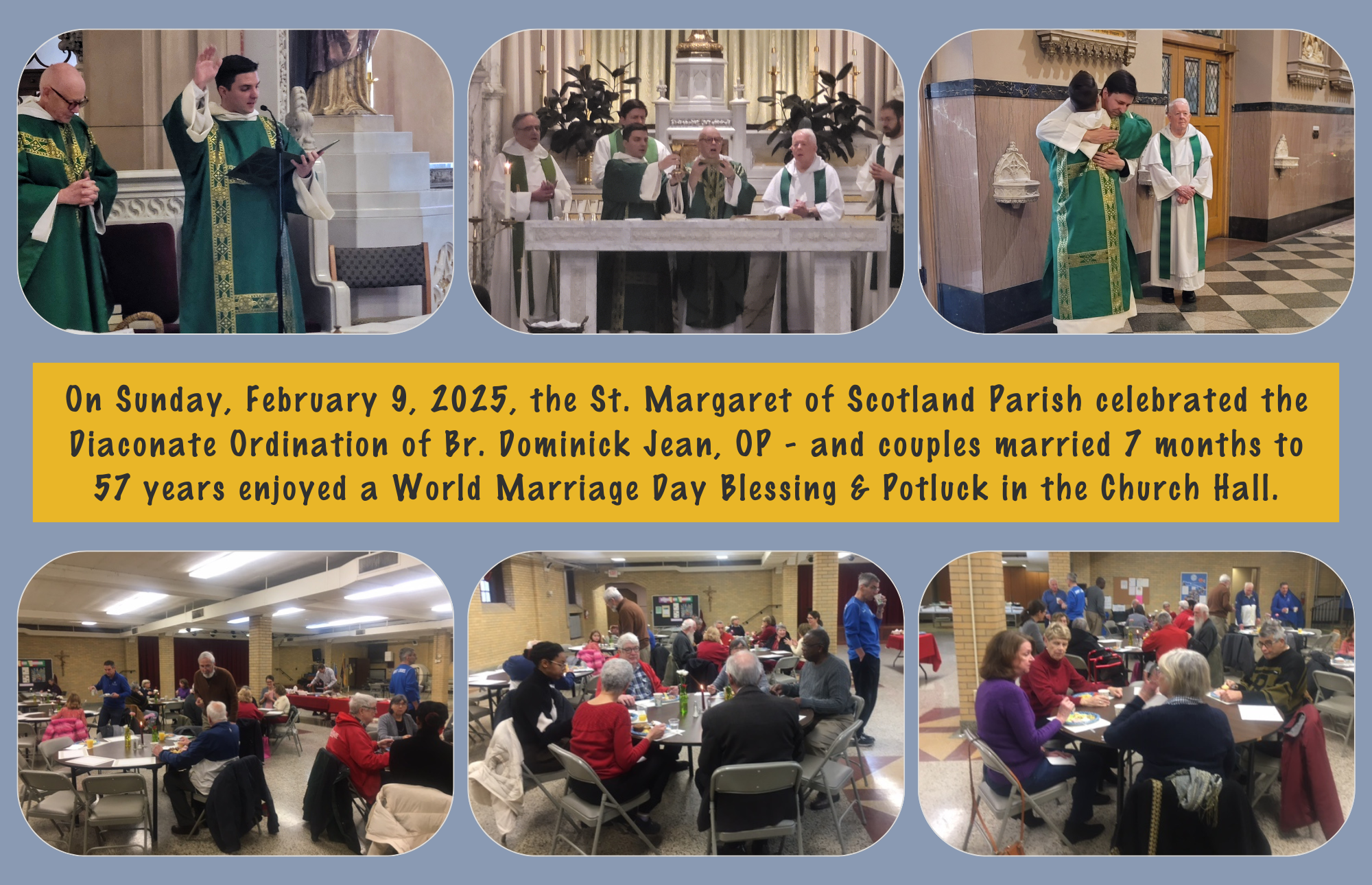Seventh Sunday In Ordinary Time

~ Last week I spoke to the challenges we face in recognizing the blessedness of the poor, and how we are called to respond. Recently our Vice-President and his advisors get something very wrong when he relies on Thomas Aquinas and his concert of the order of love – ordo amoris. Mr. Vance seems more focused on setting limits to love rather than ordering it properly. In his telling, the ordo amoris is about how our limited capacity for love should be parceled out.
Vance and his defenders’ view love, at least beyond the family, as something like modern charity – donating resources out of the kindness of your heart. When Aquinas talked about caritas it is relational – a kind of bond – friendship or communion in Christ. Modern charity gives from a safe distance, but caritas seeks union born of love.
For Aquinas the love of God is the foundation – the focus and the things that animates and orders Christian love. Vance and his supporters have a very narrow – and literal sense – of what a neighbor is – it is the person living in our vicinity. Jesus had a very different idea – it was all human beings – and includes widows and orphans, the poor, the sick and disabled, social outcasts, and even alien workers.
Pope Francis wrote to the bishops of the United States last week and told them – and us – that the ordo amoris that we are to model is drawn from the parable of the Good Samaritan – an example that “builds fraternity to all – without exception”. (The full text of Pope Francis’ letter is available below. It’s worth a read.)

Our sense of Catholic ethics values a healthy love of our own country, but not one that suggests we have no responsibility to citizens in other countries. There is no Catholic ethic that suggests we are to ignore millions of our suffering neighbors placing them at the fringes of our moral concern. We may not be able to love every neighbor in the same way or same degree, but that does not justify loving only our own people and ignoring the rest of humanity. That is what Mr. Vance suggests. That is not a love that is properly ordered.
The order Thomas Aquinas recognizes is that we need to care for our nearest and dearest while also giving a special place to the least of our brothers and sisters. When I was pastor at Purdue University and would occasionally – and happily rarely – hear criticisms about our mission trips to Haiti – and why weren’t we helping people in our own community – I would quickly respond, “Well we are!!” And for the richest country in the world, it is not an either/or proposition – it is both and.
We have a rich tradition of Catholic justice affirmed most recently by St. John Paul II as he promoted the virtue of solidarity, and Pope Benedict’s concern for the “universal common good”, and now Pope Francis’ promotion of accompaniment and fraternity.
We must not allow love for ourselves, our families, our community, and our country to obscure our responsibility to address the grave and urgent needs of our brothers and sisters around the world who are forced to live in wretched conditions. Striving to live out this kind of love does not make us a liberal – it marks us as Christians!
Pope Francis Responds In Letter To U.S. Bishops
Pope Francis has urged U.S. Catholics and people of goodwill to not give in to “narratives” that discriminate against and cause unnecessary suffering to migrants and refugees.
“I recognize your valuable efforts, dear brother bishops of the United States, as you work closely with migrants and refugees, proclaiming Jesus Christ and promoting fundamental human rights,” he said in a letter to the U.S. bishops published by the Vatican on February 11.


